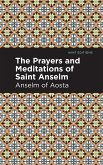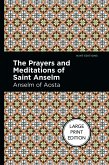Throughout the history of the church, Christians ardently pursued biblical meditation as a frequent practice in their spiritual growth. The Puritan era reveals many works and sermons dedicated to the injunction of meditation. The Puritans recognized meditation as a doorway through which they could lift their thoughts above the temporal trappings of this world and ascend to the mountain of God as they contemplate the beauties of God, the excellencies of Christ, the glories of heaven, the reality of sin, and the need to self-examine every nook and cranny of their lives.
Hinweis: Dieser Artikel kann nur an eine deutsche Lieferadresse ausgeliefert werden.
Hinweis: Dieser Artikel kann nur an eine deutsche Lieferadresse ausgeliefert werden.








